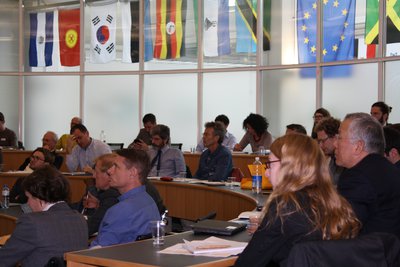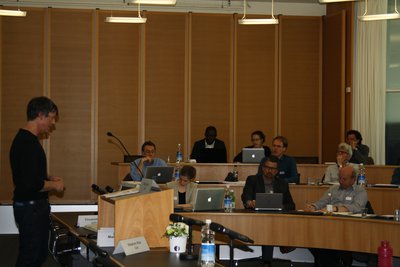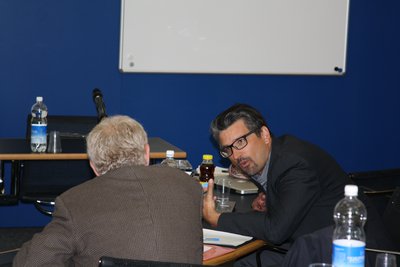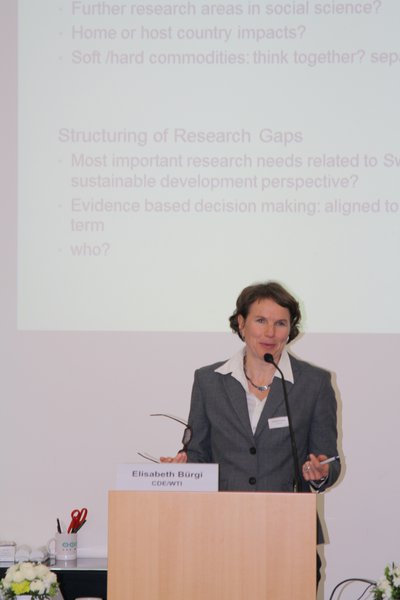5 May 2015
Swiss academia grapples with commodities and trade
On 21 April, a group of scholars and stakeholders discussed research gaps in the field of commodities and trade at an academic workshop. The event was co-hosted by the Centre for Development and Environment (CDE) and the World Trade Institute (WTI) of the University of Bern and the Institute for Business Ethics (IWE) of the University of St. Gallen.
The debate centred round a soon to be published joint working paper on research needs. Around 50 participants, mainly from Swiss academia and the federal administration, discussed open research questions related to the trade in, and the production and processing of, hard and soft commodities.
Trade in commodities – “hard” commodities which are mined or extracted, such as oil and gas, and “soft” commodities that are grown, such as coffee, sugar, cotton, or paper – has a long tradition in Switzerland. In recent years, particularly the activities of mining companies have attracted public attention and given rise to a debate on the commodity trading sector as a whole. Swiss academia is addressing the topic in order to contribute to the ongoing debate.
“In recent years, the urgent need to gain more information about the commodity sector and commodity trade and to improve analysis of available data has become increasingly apparent. The workshop was extremely valuable in this regard and contributed to the identification of the most urgent research needs in this academic field,” said Dr. iur. Elisabeth Bürgi Bonanomi, senior researcher at both the CDE and the WTI.
The workshop, which included contributions by distinguished speakers from Swiss and international academia, the commodity-trading industry, and civil society, was part of the project “Global change and developing countries: why should we care?” managed by the Commission for Research Partnerships with Developing Countries (KFPE) and the Forum for Climate and Global Change (ProClim). It was co-sponsored by the Swiss Academies of Arts and Sciences, the Swiss Agency for Development and Cooperation (SDC) and the Swiss Federal Office for the Environment (FOEN).





